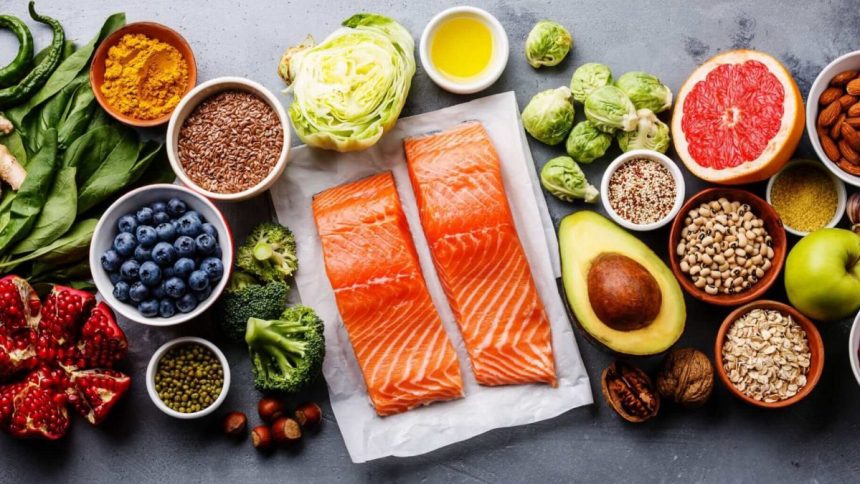Inflammation is a natural response of the body to injury or infection, a protective attempt by the organism to remove harmful stimuli and begin the healing process. However, when inflammation becomes chronic, it can lead to various health issues, including arthritis, heart disease, and more. It’s crucial, therefore, to manage inflammation and pain through safe, effective means.
This blog explores natural ways to mitigate these responses without the reliance on pharmaceuticals. Living with chronic inflammation can be challenging, but incorporating natural remedies and lifestyle changes can significantly enhance quality of life. These methods are not only beneficial for physical health but often improve emotional well-being as well. Understanding the underlying causes of inflammation is the first step toward effective management. Let’s explore some of the most effective natural strategies to reduce inflammation and alleviate pain.
Eating Habits to Combat Inflammation
What we put into our bodies can have a profound impact on our inflammation levels. Diets rich in anti-inflammatory foods are a cornerstone in managing chronic inflammation. Incorporating foods like berries, fatty fish rich in Omega-3 fatty acids, and leafy greens can make a significant difference. For instance, salmon and chia seeds are excellent sources of Omega-3s, while blueberries and spinach offer high levels of antioxidants and phytochemicals that reduce inflammatory responses. To integrate these foods into your daily routine, consider starting your day with a smoothie that includes spinach and a handful of berries. Opt for fish a couple of times a week and snack on nuts like almonds, which are also anti-inflammatory.
Additionally, spices like garlic and onions not only enhance the flavor of meals but also possess powerful anti-inflammatory properties. Including whole grains such as brown rice and whole wheat can further help in managing inflammation. Avoiding processed foods and sugars is also crucial as they can exacerbate inflammation. Experimenting with different recipes that incorporate these ingredients can make this dietary shift enjoyable and diverse.
Natural Herbal Treatments
Nature provides us with a plethora of herbs that can help reduce inflammation. Turmeric, for instance, contains curcumin, a compound with potent anti-inflammatory properties. Ginger, similarly, can decrease inflammation and is particularly effective in alleviating muscle and joint pain. Incorporating these herbs into your diet isn’t just effective; it’s also quite simple. Add turmeric to your curries, teas, or even smoothies.
As for ginger, consider brewing it into a warm, soothing tea or grating it fresh into stir-fries. Other beneficial herbs include rosemary and cinnamon, which can be easily added to various dishes to boost their flavor and health benefits. Capsaicin, found in chili peppers, is another natural anti-inflammatory agent that can be used in cooking to reduce pain and inflammation. It’s important to note that while these herbs help reduce inflammation, they should be used in moderation as part of a balanced diet. Additionally, some herbs may interact with medications, so it’s wise to consult with a healthcare provider before starting any new herbal remedies.
Medical Marijuana
For those living with chronic pain, medical marijuana can be a viable option. This natural remedy works through cannabinoids, which are known to reduce inflammation and alter pain perception in the brain. If you reside in Alabama and suffer from chronic conditions that traditional medications have failed to improve, you might consider consulting a medical marijuana doctor in Alabama. These professionals can evaluate your condition and, if appropriate, issue a medical marijuana card, allowing you to legally purchase and use cannabis for your symptoms.
The process involves understanding the specific laws in Alabama, which dictate how medical marijuana can be obtained and used. It’s important to note that while medical marijuana is helpful for many, it’s not suitable for everyone. Side effects can include dizziness, dry mouth, and in rare cases, anxiety. Therefore, having a thorough discussion with a medical marijuana doctor in Alabama can help ensure that it is an appropriate treatment option for your particular health needs.
Physical Activity and Relaxation Techniques
Regular physical activity is essential in managing inflammation. Low-impact exercises such as yoga, swimming, or light jogging can significantly reduce inflammatory markers in the body. Moreover, these activities boost overall health and help manage body weight. Engaging regularly in physical activity not only helps reduce inflammation but also improves mental health, enhances sleep quality, and boosts endorphin levels, which are natural pain relievers. It’s important to choose activities that you enjoy to maintain consistency and motivation.
For those who may find regular exercise daunting, starting with just ten minutes a day and gradually increasing the duration can be a practical approach. Additionally, incorporating relaxation techniques such as guided imagery or progressive muscle relaxation during or after exercise can enhance the anti-inflammatory benefits of physical activity. Scheduling regular periods of relaxation and mindfulness into your day can further help manage stress, a common contributor to inflammation.
Lifestyle Modifications
Adequate sleep and effective stress management also play significant roles in controlling inflammation. Poor sleep can exacerbate inflammatory conditions, so aiming for seven to eight hours per night is crucial. Consider adjusting your bedroom environment to improve your sleep quality—this can include reducing noise, lowering light levels, and maintaining a comfortable temperature. Reducing stress is another key element.
Chronic stress triggers the release of pro-inflammatory cytokines, so managing stress is as important as dietary changes. Techniques can include mindfulness, yoga, or even simple daily walks. Furthermore, minimizing the consumption of alcohol and quitting smoking can dramatically reduce inflammation levels in the body. Adopting these lifestyle changes not only helps manage inflammation but also contributes to overall well-being and longevity. It’s also helpful to engage in social activities and hobbies that bring joy and relaxation, as emotional health is deeply interconnected with physical health.
Conclusion
Adopting a multifaceted approach is often the most effective way to manage inflammation and pain naturally. Each body is unique, and what works for one person may not work for another. Therefore, it’s important to try various methods to discover what works best for you. Always remember to consult with your healthcare provider before starting any new treatment plan, especially when it involves significant changes like using medical marijuana or altering your diet or exercise routine. By embracing these natural methods, you can not only reduce inflammation and pain but also enhance your overall quality of life.
Lynn Martelli is an editor at Readability. She received her MFA in Creative Writing from Antioch University and has worked as an editor for over 10 years. Lynn has edited a wide variety of books, including fiction, non-fiction, memoirs, and more. In her free time, Lynn enjoys reading, writing, and spending time with her family and friends.















